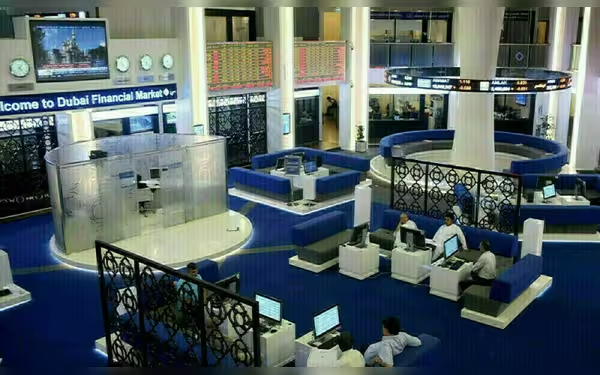Thursday, November 7, 2024 07:43 AM
UAE Stock Markets Surge on Positive Earnings and Rising Oil Prices
- UAE markets boosted by earnings and oil price surge.
- Emirates NBD Bank shares rise by 1.8%.
- Abu Dhabi index marks six consecutive sessions of gains.
 Image Credits: brecorder
Image Credits: brecorderUAE stock markets rise due to positive earnings and oil price increases, reflecting economic recovery amid geopolitical tensions.
The stock markets in the United Arab Emirates (UAE) experienced a notable boost on Friday, primarily driven by positive earnings reports and a significant rise in oil prices. This surge in oil prices was largely attributed to reports indicating that Iran is preparing to launch a retaliatory strike on Israel from Iraq in the near future. In the oil-rich Gulf region, an increase in crude oil prices typically leads to enhanced financial performance across various sectors, particularly benefiting banking stocks.
As November commenced, Dubai's main index recorded a gain of 0.7%, recovering from losses in the previous session. Leading this upward trend was Emirates NBD Bank, which saw its shares increase by 1.8%. Additionally, Emaar Properties, a prominent developer in the region, experienced a rise of 1.7%. Other notable gainers included Tecom Group, which reported a remarkable 20% growth in its third-quarter net profit, amounting to 339.6 million dirhams (approximately $92.46 million), resulting in a 0.6% increase in its stock price.
Meanwhile, Abu Dhabi's benchmark index also showed positive momentum, settling 0.2% higher. This marked the sixth consecutive session of gains for the index, bolstered by a 2% increase in the shares of First Abu Dhabi Bank, the largest lender in the UAE, and a 2.9% rise in Abu Dhabi Commercial Bank, the third-largest lender in the country. The Dubai index, in particular, recorded a remarkable 3.2% increase, marking its largest weekly gain since early November of the previous year. On a monthly basis, the index achieved a growth of 1.9%, according to data from LSEG. Similarly, the Abu Dhabi index advanced by 1.6%, representing its highest weekly rise in nearly two months.
This positive trend in the UAE markets reflects a broader confidence in the economic recovery and resilience of the region, particularly in the face of geopolitical tensions. Investors are likely to keep a close eye on the developments in oil prices and earnings reports, as these factors will continue to play a crucial role in shaping market dynamics. As the situation evolves, it remains essential for stakeholders to stay informed and adapt their strategies accordingly, ensuring they are well-positioned to capitalize on potential opportunities in the market.













